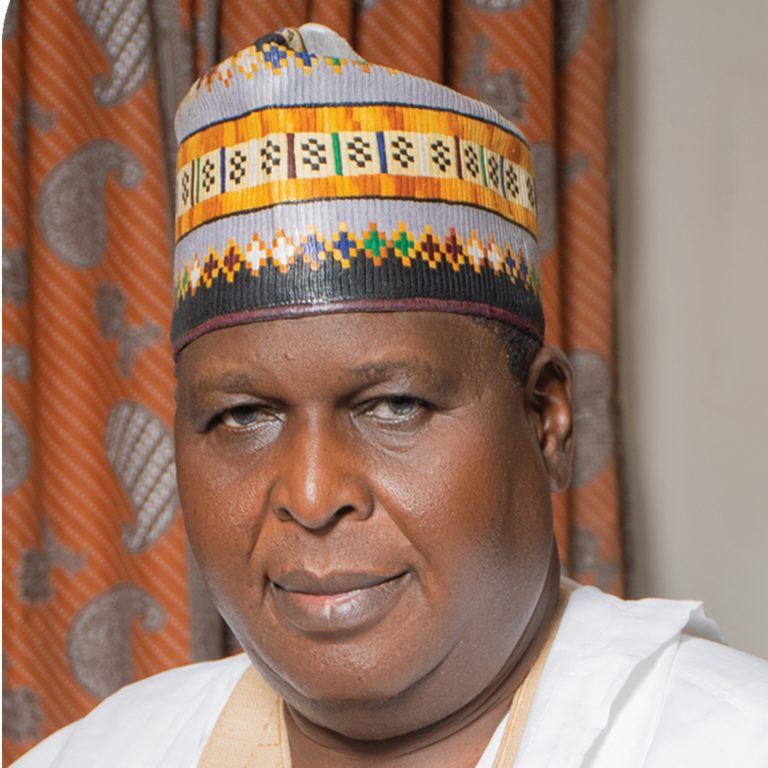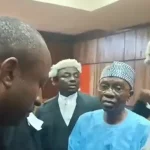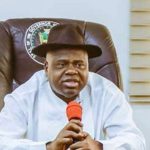...To get all news updates, Join our WhatsApp Group (Click Here)
Also Join our WhatsApp Channel (Click Here)
The Director General National Council for Arts and Culture (NCAC), Otunba Olusegun Runsewe on Friday bagged Vanguard Newspaper’s Arts, Culture & Tourism Icon
Award.
The colourful event took place at the Convention Centre of Eko Hotel and Suites, Victoria Island, Lagos.
In attencdance to celebrate with the Tourism icon were top celebrities, politicians and business moguls.
The Vanguard award ceremony was staged to honour distinguished Nigerians who have excelled in their chosen endeavours.
It is worthy to note that Otunba Runsewe has paid his dues as regards the tourism sector which culminated to his being nominated for the award.
Outside the shores of the country, as it is at home, Runsewe is the face of Nigeria’s rich cultural heritage.
Thr highly creative tourism icon was born in Kaduna to Mr. Bankole Runsewe and his wife who were from Ogun State. He attended St. Michael Primary School, Kaduna and later went to Vohoeven Technical College Minna, which has since been renamed Government Technical College, Minna.
Otunba Runsewe holds an MBA in Marketing from Edo State University and Higher National Diploma in Management Studies from London School for Executives. He also has a Diploma in Public Relations from the London School of Management Studies, in addition to a Professional Certificate in Estate and Property Management from Kaduna Polytechnic.
In the last 30 years, Otunba Runsewe has been a dominant personality in the arts, culture and tourism sectors in Nigeria, with a good track record in the media. He worked as a marketing manager at the New Nigerian Newspaper, rising to the position of general manager in the organisation.
He was also head of Public Relations (media) at the National Theatre; MD/CEO, Sports Weekly; Publisher and Editor-in-Chief of National Network Newspapers; and Media Coordinator, Commonwealth Heads of Government Meeting, CHOGM, in 2003.
In year 2000, Otunba Runsewe was appointed Executive Director at the National Orientation Agency, from where he proceeded to the Nigerian Tourism Development Corporation, NTDC, in 2006 as Director-General. Whatever presence Nigeria has today in the tourism sector, both at home and abroad, is largely as a result of the work done by Otunba Runsewe as D-G of NTDC and other related sectors. His innovative tourism marketing campaign slogan, “Tourism is Life”, gave national and international visibility to Nigeria’s tourism industry, positioning the country as one of the tourism destinations in Africa.
Runsewe achieved that, partly through annual exhibitions at different international tourism expositions like Feria Internacional del Turismo, FIRUR (one of the most important tourism exhibitions in the world) in Madrid Spain; ITB Berlin, Germany; Arabian Travel Market, Dubai; World Travel Market Oakland, London, etc.
It was during Otunba Runsewe’s tenure at NTDC that the international community, through the World Travel Market in London and FITUR in Spain, began to take Nigeria seriously as a player and partner in global tourism.
Female artists converge for Six Swans
King Charles bestows MBE awards on Olagoke
The Nigerian Tourism Village, which Otunba Runsewe put together during the 2010 World Cup in South Africa and won award for, was rated as one of the best at the event. He also took Nigeria’s Arts & Culture to the 2018 World Cup in Russia.
Otunba Runsewe is a fellow of the Nigerian Institute of Public Relations; Chairman, Nigerian Sport Writers Association; Chairman, Board of Nigerian Institute of Journalism; Fellow, Institute of Management, FIM; Fellow, Association of Business Executives, FABE, London; President, World Crafts Council, Africa Region; President, Nigeria Golf Federation; and Chairman, Africa China Culture and Arts Exchange Society.
As President of Nigeria Golf Federation, Otunba Runsewe, within one month in office, introduced the World Handicap System – a single, consistent measure of playing ability for golfers of all levels, regardless of their location in the world – through the Royal and Ancient Golf Club, R&A, of London. Similarly, he organised the first Stakeholders’ Conference on Golf in the history of golf in Nigeria.
A detribalised Nigerian, Runsewe holds several tittles from different parts of the country, including Danbura Kabi, Kebbi State; Obiagu I of Igbo Ukwu, Anambra State, etc. He is the Director-General of National Council for Arts and Culture, NCAC, a position he assumed in 2017. The vision of the Council under his leadership is to reposition culture as a tool for national unity, peace and social integration, as well as a machinery for stimulating rapid socio-economic growth and development. He has been pursuing this vision with total passion and utmost vigour.
For about 30 years, NCAC’s NAFEST, established and branded as “the festival that unites the nation”, made little or no impact, until 2017 when Otunba Runsewe took over the Council as DG.
Using the platform of NAFEST, Otunba Runsewe began to traverse the length and breadth of Nigeria, preaching the gospel of love and unity to all. Nigerians accepted his message. Consequently, every year, all states of the federation look forward to NAFEST. They bring their arts and culture to the host state. No other event in Nigeria, except our national football, has been a unifying factor as Otunba Segun Runsewe’s NAFEST!
Runsewe is unrepentant in his belief that the culture sector has the key to Nigeria’s unity and economic breakthrough. At NCAC, he vigorously pursues his pet Skill Acquisition Programme which has provided thousands of employments to young Nigerians and women. “I am in touch with the Chinese Government on training in China, at least 100 youths from each state in Nigeria,” Runsewe disclosed.
Last year, during Lagos NAFEST, Otunba Runsewe launched what he called 37 Cultural Wonders of Nigeria. The idea is to prime each state to develop one iconic product in which they have a comparative advantage.
The Abuja Cultural Market sits on an expansive 2.5 hectares of land (valued at N9.8 billion as at 2020) with massively renovated facilities. It is located in the heart of Abuja Central Business District, after the Yar’Adua Centre, near Abuja Continental Hotel and Shoprite.
The Arts & Culture Market was built by the Federal Government for the 2003 Commonwealth Heads of Government Meeting, CHOGOM, held in Abuja, which Runsewe’s committee handled. After CHOGOM, NCAC took over the facility.
Before Runsewe came to NCAC in 2017 as D-G, the facility was decrepit. Hoodlums took over the place, and some powerful interests began to sell off parts of the land.
When Runsewe came, he expelled all the hoodlums from the facility, recovered the land and began a massive renovation of the place. He refused to connive with those powerful interests in the disposal of the land. The powerful interests began to threaten Runsewe’s life. After the threats failed, they vowed to use their connections to jail him. Runsewe said: “In fact, some powerful people who had interests attempted to lock me up. I said to them, if this is the only thing I will do for this country, I will recover this property.”
He succeeded in recovering the more than N9.8 billion land on which the Abuja Cultural Market sits, and went on to renovate it to what it is evolving to be today — a tourism destination for Nigerians, diplomats and tourists from other countries.
Otunba Runsewe could have decided to play ball with those “powerful interests”, but he chose not to. Today, the Nigerian people, the Federal Government, the Arts, Culture and Tourism industry are beneficiaries of that uncommon battle waged by Otunba Segun Runsewe.
“The market,” Runsewe disclosed, “was publicly presented to members of the Diplomatic Community last week as part of our strategic partnership with foreign missions in Nigeria. The essence is
to develop a one-stop-shop for cultural activities in Abuja.”
You can get every of our news as soon as they drop on WhatsApp ...To get all news updates, Join our WhatsApp Group (Click Here)
Also Join our WhatsApp Channel (Click Here)

















